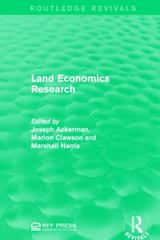Question
1.Which of the following will most likely decrease the current price of personal computers? a.an increase in taxes on the production and sale of personal
1.Which of the following will most likely decrease the current price of personal computers?
a.an increase in taxes on the production and sale of personal computers
b.the expectation that the price of personal computers will increase during the next six months
c.a technological advance that decreases the production costs of personal computers
d.development of new software that makes it easier for more people to use personal computers
2.If Georgia experiences a late frost that damages the peach crop, we should expect the
a.demand curve for peaches to shift to the right and the price of peaches to rise.
b.demand curve for peaches to shift to the left and the price of peaches to fall.
c.supply curve for peaches to shift to the right and the price of peaches to fall.
d.supply curve for peaches to shift to the left and the price of peaches to rise.
3.A price ceiling set below an equilibrium price tends to cause persistent imbalances in the market because
a.Quantity supplied exceeds quantity demanded but price cannot fall to remove the surplus.
b.Quantity demanded exceeds quantity supplied but price cannot rise to remove the shortage.
c.Quantity supplied exceeds quantity demanded but price cannot rise to remove the shortage.
d.Quantity demanded exceeds quantity supplied but price cannot fall to remove the surplus.
4.An add in the newspaper claims that the price of milk will increasenext week. At the same time, a new and improved pasteurization process makes milk production more efficient. Given these two effects, what can we say about thecurrentequilibrium price and quantity of milk?
a.Equilibrium price will increase; the effect on quantity is ambiguous.
b.Equilibrium quantity will increase; the effect on price is ambiguous.
c.Equilibrium quantity will decrease, equilibrium price will increase.
d.Equilibrium price will decrease; the effect on quantity is ambiguous.
5.A tax on the buyers of coffee will
a.increase the price of coffee paid by buyers, decrease the net price of coffee received by sellers, and decrease the equilibrium quantity of coffee.
b.increase the price of coffee paid by buyers, increase the net price of coffee received by sellers, and increase the equilibrium quantity of coffee.
c.decrease the price of coffee paid by buyers, increase the net price of coffee received by sellers, and decrease the equilibrium quantity of coffee.
d.increase the price of coffee paid by buyers, decrease the net price of coffee received by sellers, and increase the equilibrium quantity of coffee.
Step by Step Solution
There are 3 Steps involved in it
Step: 1

Get Instant Access to Expert-Tailored Solutions
See step-by-step solutions with expert insights and AI powered tools for academic success
Step: 2

Step: 3

Ace Your Homework with AI
Get the answers you need in no time with our AI-driven, step-by-step assistance
Get Started


